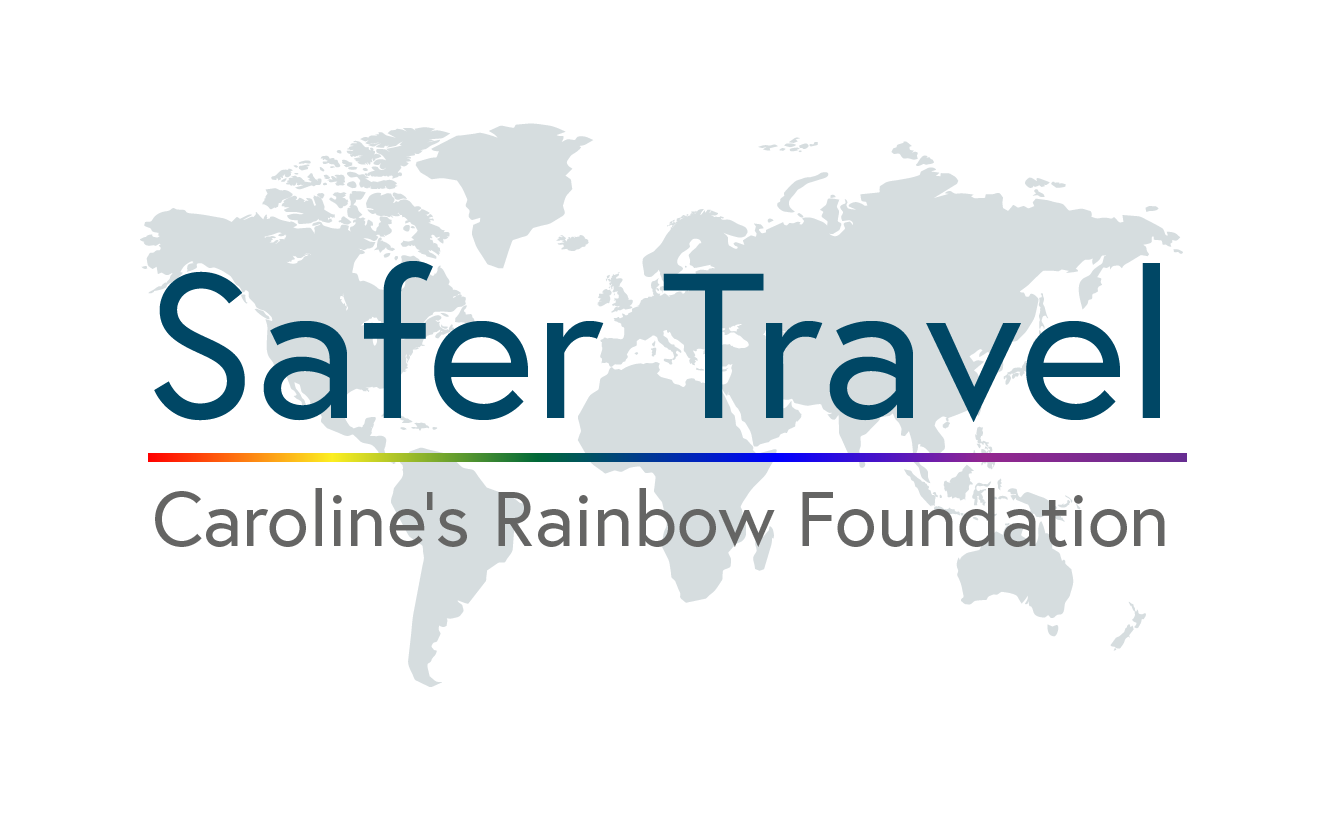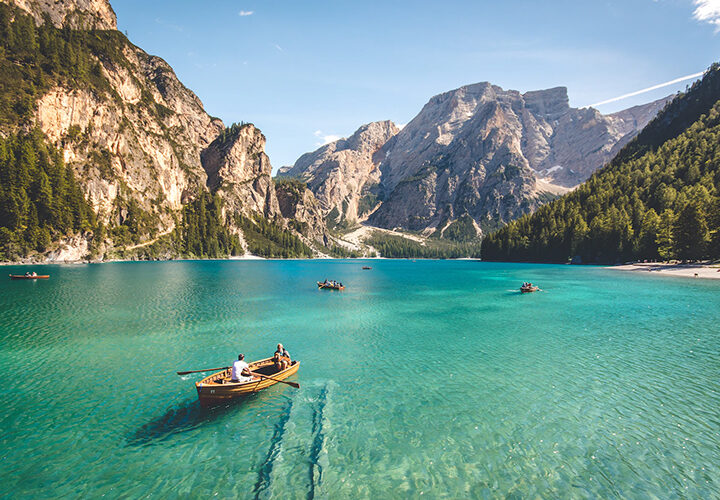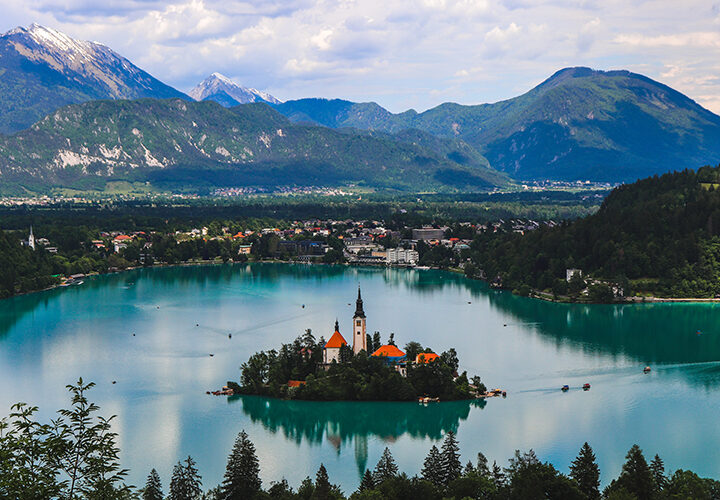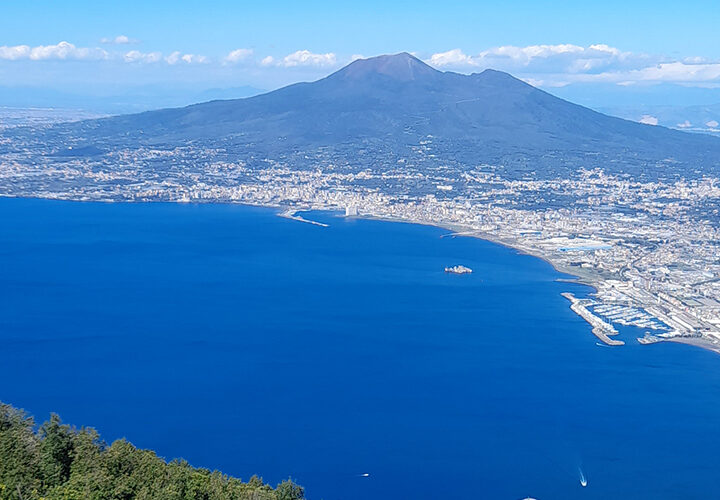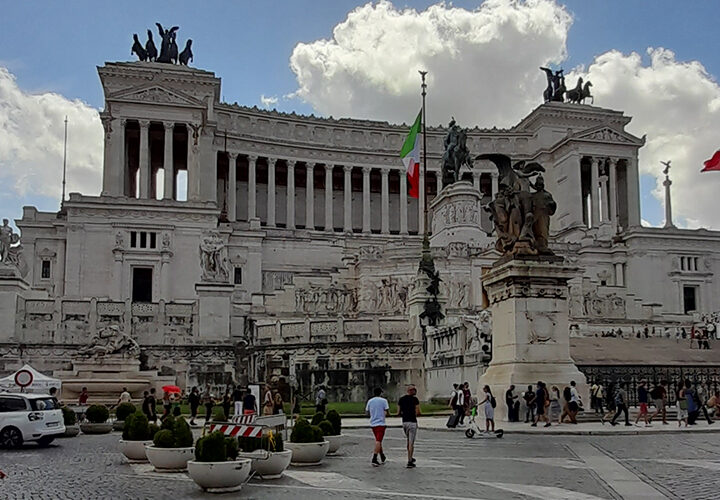Why travel? An exploration of the mentality of travelling the world, and the benefits that come along with it.
Many people might just associate travel with holidays, and getting away from it all for a week or two to relax somewhere nice, or do something exhilarating. However, all travel, however big or small, is inherently decided by an ideology about why we want to travel. This is different for everyone, and some people may have a solid understanding of why they want to travel, for others they might not be able to quite put their finger on it; they just know they love it. For many people, travel is about more than just leisure, and there are plentiful benefits that can come from seeing the world, beyond just ticking things off your bucket list. This is a good reason to see the world, as it means you’ll get to see a whole host of stunning and fascinating things, but seeing the world can have more profound effects on a personal level too, as well as giving you a fantastic photo album. In this blog I will aim to explore some of the main reasons to travel, what you should consider while travelling and what you can gain from travelling. While this is different for each and every person, this might give you some ideas you hadn’t considered about the benefits of travel, and persuade you to step out of your comfort zone and see what the world has to offer.

Where to?
Deciding where to travel can be difficult, especially if you’re saving up for one trip but have lots of things in mind. When planning a holiday, you need to choose somewhere you’re going to enjoy, and that is within your budget and means. There are three main considerations to think about before deciding on where to travel: where you want to go, what type of holiday you want and what you hope to get from it. You could consider these in a few ways, such as:
- Where? This could be a specific country, region within a country or much broader than this. For example, you might want to visit Italy because you’re fascinated by Italian culture, or you might want to visit the Mediterranean because you’re interested in the myriad of cultures there. You might want to visit the USA to see it’s cities and attractions, or to embark on a North American road trip through the untamed wilderness of the west and up to Canada. Depending on your chosen destination (or idea of what you like) you can decide-
- What? What type of trip you want to plan. This could be a week’s holiday, a long weekend, a month-long travelling holiday (such as Interrailing) or an extended trip: the possibilities are endless. This could be the first decision you make when travelling, for example if you want to have a gap year but aren’t sure what to do yet, but often this is decided by where you want to go, and-
- Why? Why you want to go where you want to go. This is more than just wanting a holiday, or deciding a gap year sounds like a good plan for you- this is why the specific country or region you’ve chosen interests you. Is it the unique culture you want to experience? The weather or scenery you want to see? Or maybe you’ve already considered some of the benefits of travelling, and have decided that this area is the best one to fulfill these expectations. Either way, why you want to go somewhere is an important consideration, as the world is broad and varied and each part of it offers a different experience to you, the traveller.
The order of these three considerations will change from person to person, and often you might start with a much stronger idea of how to answer one than the other two. However these three considerations are the foundations of any good travelling experience, not only because they offer the first ideas of what you’re going to do on your holiday, but because they allow you to plan holidays in a way to utilise the benefits of travel. By understanding early on why you want to travel, you’ll be able to make the most out of your trip.

Can travel change you?
Travelling is a fun and transformative experience that can have a profound affect on our lives. These effects extended further than just enjoyment though, even a novice traveller is invariably affected by their adventures, whatever these may be. Often these changes are deeply personal, and therefore difficult to quantify. For changes like this, it’s hard to anticipate them before you begin travelling, and often hard to even describe them after you’ve travelled, you just feel changed. While these changes are best discovered for yourself, there are some more quantifiable changes that travel often has on people, and can be anticipated before you travel. These changes are of course ambivalent, with positive but often negative aspects, and I will explore both these in the interests of transparency. However, for many people there will be limited negative aspects, and they’ll find travel to be a holistically positive experience. But like anything in life, there’s good and bad, and travel is no different

Mental Health
Travel can help a person’s mental health in a whole variety of ways. Some researchers highlight how people with chronic anxiety often have a reduced memory and goal-setting ability, as their brains are overworked by the anxiety. So, taking the time to remove themselves from this intense environment and going somewhere to get away from work gives their brain time to rest, and not only means they’re more relaxed while on holiday, but actually makes them more productive when they get back. This can help people feel more in control of their mental health, and provide a much-needed reset to improve productivity.
In addition to this, travel can boost mood. Travel allows us to engage in activities we really enjoy, and find new places and activities we didn’t know we would enjoy until we tried them. This gives travellers a wider array of exciting activities that they can do, at home and abroad, and enjoy. Furthermore, booking and planning holidays in advance gives you something to look forward to, which means even if there’s long periods where you’re having to focus on work, then it’ll give you something to work towards, as well as motivating you to save money.
Studies also show that increased creativity improves mental health. Travel can increase creativity by introducing you to a wide range of places, ideas, activities, languages and cultures. This could create inspiration for creative pursuits, as exposure to new sights, sounds and ideas can really boost your creative spark. Seeing somewhere that isn’t your home country can also highlight just how big the world is, even if you don’t plan on seeing it all. This will boost your inspiration and understanding of the world, and will ultimately make you cleverer. You will inevitably discover things on your travels that you didn’t already know, be it facts about the place your visiting, a story from a fellow traveller or some phrases in the local language. And regardless of how small or seemingly trivial this information might be, it will broaden your knowledge which will make you a clever person and someone who others will consider knowledgeable.
Confidence and personal development
Travel can have a profound affect on people’s confidence, at all ages. Before I went on my first foreign holiday (excluding a school trip to Germany when I was 14, where most of the organising was done by teachers) I didn’t feel confident about going to foreign countries, and even things like navigating an airport seemed overwhelming. Even though my first foreign holiday was just a 2-night weekend break in Milan, this experience really improved my confidence in thinking about travel. It made me feel like a (literal) whole new world had just opened before me, and that the dreams I’d had about foreign travel could be moulded into reality, and now I have been on and plan to go on many more exciting foreign trips. There are many anxieties and insecurities people may have around travel, such as navigating airports, cultural differences, food differences, keeping belongings safe, getting lost, weather, language, and many other things- and while research on these issues is important before you go, the best thing to do is just to go for it! Try it out, make mistakes, seek advice, and by learning you can do these things on the go you will find your confidence is significantly improved.
But it’s not just confidence in travel that improves the more you travel, but your confidence more generally. You might find many personal qualities are improved through travelling, and possibly some skills gained entirely. For example, independence and decision-making skills: navigating unfamiliar territories, planning itineraries, and making decisions on the go helps develop independence, self-reliance, and problem-solving abilities. Travel ca often be complicated and challenging, but by rising to the challenge you improve your ability to handle pressure, and make decisions in unfamiliar environments. It also increases our resilience, as dealing with unexpected situations such as flight delays, language barriers, or cultural differences enhances adaptability and resilience, strengthening our abilities to handle challenges.
Travel often involves stepping out of your comfort zone, and in my opinion a new adventure show always be a step up from the last and challenge you in new ways- however big or small these may be. This means your comfort zone is ever-expanding, and allows you to have greater confidence in yourself to try new challenges and experiences, both in travel and life. Also, by engaging in new experiences abroad you’ll gain a, increased cultural empathy and understanding. Understanding other cultures, both their differences and similarities to ours, is key to avoiding prejudice. So, by experiencing more cultures, you’ll better understand them and be able to connect with individuals from different walks of life. This doesn’t just apply to the cultures you’ve experienced either; studies show that more travelled people are better at understanding and embracing many cultures, well beyond the ones they’ve had personal experiences with. This will allow you to grow into a tolerant, global-minded person who is able to adapt to challenges and navigate unfamiliar waters.

Understanding of the world.
On top of cultural empathy, travel also gives you a perspective of the world you can’t get from books or TV. Unlike in the days of Christopher Columbus or Marco Polo, we know and can easily access information about the world. We know the 197 (+) countries, their capitals, what they all look like and fascinating facts about each one. However, this knowledge cannot compare to the deeper understand of the world that one gets from travelling. Cultural immersion not only helps us understand cultures, but also breaks down stereotypes and division. It can also help you understand yourself better, and see yourself in different cultures. Although we are inevitably products of our culture(s), we are before anything else human being, and by seeing the different cultures of other countries and other human being, you can get a deeper appreciation of what unites us as well as divides us.
As well as cultural learning, travel can improve linguistic skills. Learning a language is easiest through immersion, so travel will inevitably give you a wider understanding of more languages, through commonly used words and phrases. This will make communication with people from different countries easier, and understanding of our own language will increase.
Travel is also very educational from a historical and cultural perspective. Visiting a host of historical sites and landmarks will increase understanding of history, and the interconnectedness of cultures. It may also introduce you to histories that you hadn’t previously learned about in school, or challenge your pre-conceptions about certain historical periods, such as the Ancient Greeks. You can also learn how a country’s history influences its current state, and how cultures evolve over time, just by seeing these historical landmarks in contrast with the country’s modern state. It can also educate us on the climate crisis, as seeing beautiful geographical formations or extreme climates can highlight the effects of climate change and how it affects communities different to ours.

Employability
Studies show that travel can improve employability. This can take various forms including:
- Global mindset and cultural competence: Employers increasingly value individuals with a global mindset and cultural competence. Traveling exposes us to diverse perspectives, enhances intercultural communication skills, and boosts our ability to work in multicultural environments.
- Adaptability and problem-solving abilities: The ability to adapt to new situations, navigate unfamiliar environments, and solve problems on the go are skills highly sought after in the professional world.
- Language proficiency and cross-cultural communication: Proficiency in foreign languages acquired during travel opens doors to international job opportunities and improves cross-cultural communication skills.
- Networking and international connections: Travel allows for networking opportunities with people from various industries and backgrounds, leading to valuable connections and potential career opportunities.
Furthermore, the specific experiences you have while travelling could help you with work and jobs. For example, you might discover a type of job you hadn’t really considered whilst on holiday, and not only might you then apply for this job, but you may even apply to work abroad. Many jobs in tourist areas or skiing areas are often filled by expatriates that discovered the job whilst travelling, and are either working there during a sabbatical year off, or have permanently moved over there for work. If you’re on a gap year and are working as you travel, you might discover a career you love that you thought would just pay your bills, but in the end interests you enough to want to work full time.
At a glance: the positive effects of travel on age groups:
Children (0-15 years) Introduces them to new countries and cultures – Builds confidence in being able to travel abroad – Creates fun and long-lasting memories – Helps with their foreign language learning development – Introduces them to fun activities they might want to pursue when they’re older, such as skiing, hiking or sight-seeing.
Young adults (16-25 years) Gives them fresh perspectives on interesting cultures – The perfect age for longer holidays, due to ability to travel but less responsibilities – helps their mental health – Gives them a better idea of the world they’re working in – Introduces them to career ideas – Increases employability through things like global mindset and cultural competency – Increases scope of friends internationally – Increases confidence and ability to be independent – Increased independence.
Adults (26- 65 years) Reduces stress – Allows a break from work – Allows them to ‘catch up’ on travel experiences they couldn’t have as a child – Something to look forward to – Creates unforgettable memories with family – Increased financial capability.
Older adults (66+ years) Opportunity to travel to ‘bucket list’ destinations – Helps with lonliness- Opportunities to explore accessible locations such as staycations – Creates unforgettable moments with friends/grandchildren – Retirement means no work restraints so more option for travel – Opportunity to observe change within other countries than your own.
Detriments
Travel is, for most people, an overwhelmingly fun experience. But this isn’t to say that travel, especially longer adventures, are without their issues. Many travellers may encounter these issues alongside, or in place of, the many advantages already listed. Some people find that these issues stop their travels from being successful, but for others they’re just worth knowing about so they can be navigated before you go.
- Mental health. Although travel can have many positive impacts on mental health, any length of travel from multi-year backpacking to a 1-night city break can have negative effects on one’s mental health. This includes things like stress from having to organise everything, or being in an unfamiliar environment. Travelling, especially solo, is hard and complicated, so it’s natural to feel overwhelmed by everything. Furthermore, homesickness is very common even in short breaks. If you’re finding this hard, just take time to acknowledge these feelings, and try and maintain regular contact with friends and family back home, especially through calls and video chats. Also try, especially if you’re travelling for a while, to make friends with people out there, such as by going to clubs or social groups or staying in youth hostels with fellow travellers. By increasing your social circle while out there and reaching out to people, it’ll begin to feel like the place you’re staying at isn’t so alien rom home.
- Travelling can be expensive, and finding funds for it often isn’t easy. If you like travelling a lot, remember to budget appropriately. This can include researching train, food and accommodation prices beforehand, booking well in advance where possible and factoring this into your budget. Always try and travel with a healthy budget and allow yourself to have spare money, otherwise you might get into financial issues when you’re over there.
- Post-Brexit travel. Following the UK’s exit from the European Union, travel restrictions have changed when travelling to EU countries and may change in future, when travelling to any country. Ensure you stay updated about any changes, and be sure to have the correct visa requirements before you book anything. For most countries these changes are very minimal, but do include waiting in different lines at the airport and may include some financial implications to travel (suggested as of September 2023.)
- Health and safety considerations. Travelling often means putting yourself in unfamiliar and often unsafe situations, and it’s always best to be wary of this. Look up safety information about the places you wish to visit, such as common crimes and scams and areas to take extra care, and ensure you meet any vaccine requirements to enter the country. Always learn and memorise/ note down the emergency contact numbers for the country you’re in, as well as what you’re advised to do in an emergency. If you’re travelling solo, I would highly recommend staying in hostels with fellow travellers, and staying with them to be safe, especially if you’re going to dangerous places or even just getting a drink at the local bar. Always ensure someone knows where you are.
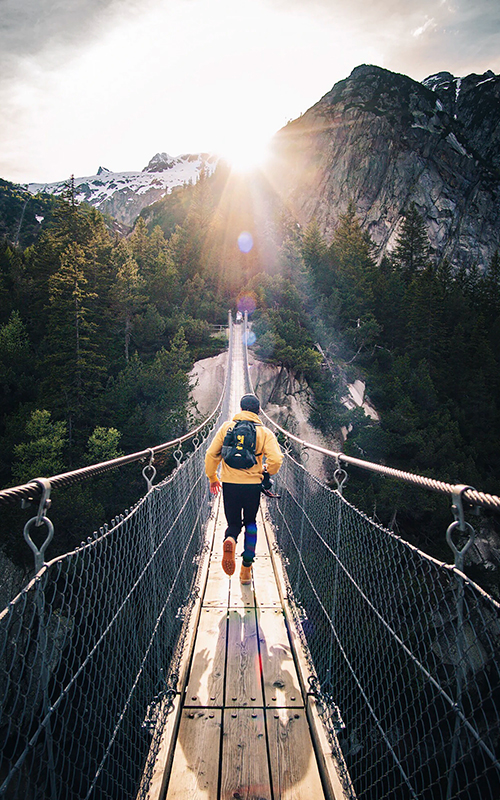
The world of travel is impossibly broad, with endless options for where to go, what to experience and how to best experience it. But travel is never objective, and will always have impacts on you. Some of these will just be pros and cons of a trip away, others will be profound, and change who you are as a person. Regardless of what stage you’re at in the travelling journey, the fact you have a great appreciation for travelling is enough. Each adventure is different, each will change us in different ways, and each will have its own challenges. However, the only real way to see how travel changes you is to get out there and try it! Travel at your own pace, push yourself out of your comfort zone, and always make safety and mental health your number one priority; the rest you’ll discover along the way.
Written by Jeremy Hodgson
